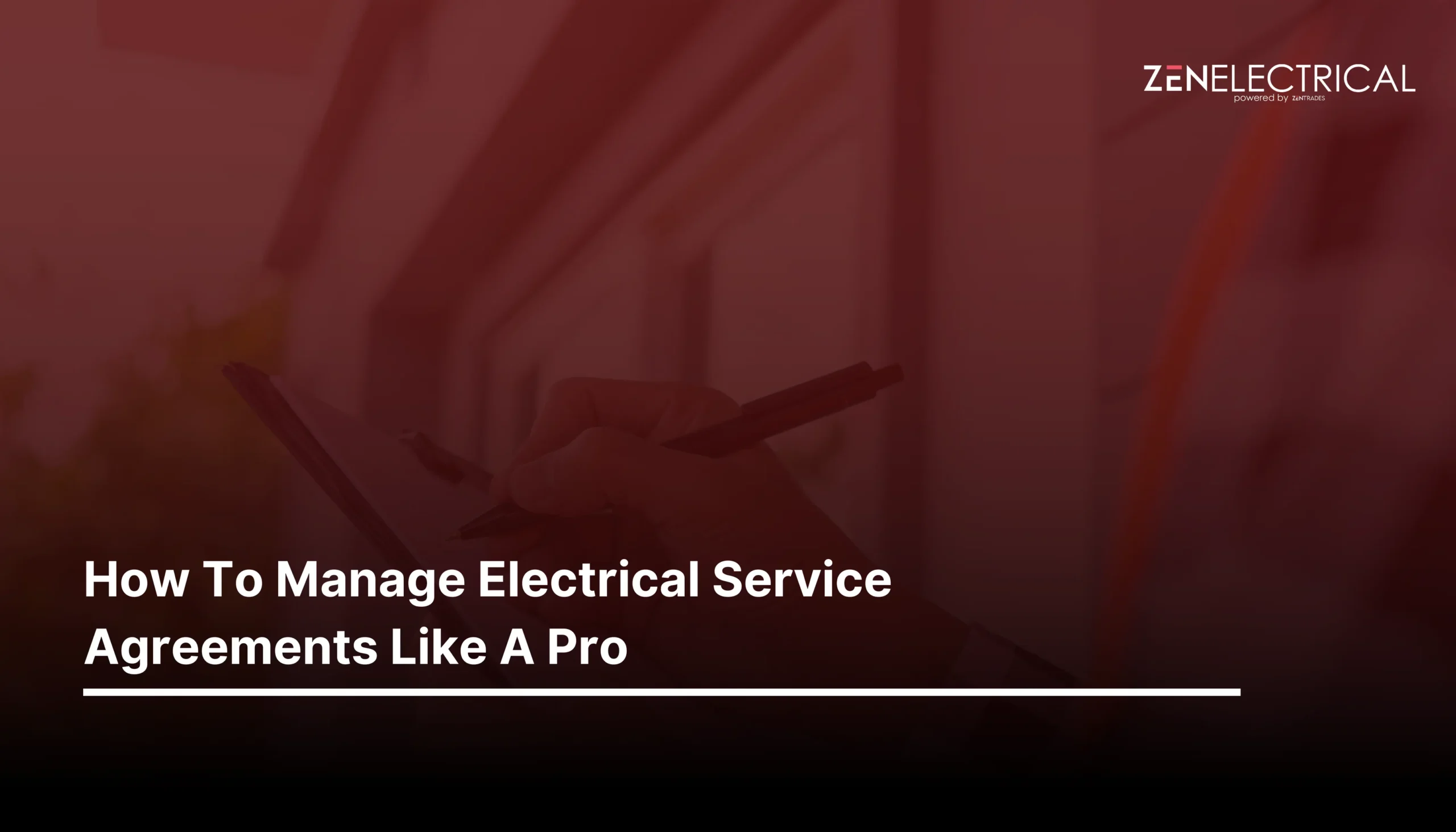
- Connecticut electricians earn $69,000/year on average, which is significantly higher than the national mean.
- The state expects 14% job growth for electricians by 2032.
- You need 8,000 hours of on-the-job training plus 576 classroom hours to qualify for the journeyman exam.
- Exams require 70% to pass & cost between $65 and $150 per attempt.
- You must pass CT’s exams, even with out-of-state licenses.
If you are considering a career in the electrical trade or planning to become a licensed independent electrical contractor and start your own business, then there has never been a better time to get a proper electrical license. With construction surging across the residential, commercial, and industrial sectors, demand for licensed electricians is skyrocketing. According to the U.S. Bureau of Labor Statistics, the average electrician in Connecticut earns $68,625 annually, which is significantly higher than the national average. Some experienced union electricians can often pull in over $90,000 per year without including overtime or benefits.
A 2024 Associated General Contractors (AGC) survey found that 93% of electrical contractors nationwide are struggling to fill hourly positions. The state projects 18% job growth for electricians by 2032, and this rate is above most other skilled trades. This means that there are more open jobs, job security, higher wages, and better opportunities for those who hold the proper Connecticut electrician license.
However, you can’t legally perform electrical work in Connecticut without a license or without being a registered apprentice under supervision. And getting licensed as an electrician in Connecticut is a multi-step process. The state requires all electricians to hold a valid license and defines dozens of specialized classifications, from unlimited electrical contractor licenses to low-voltage installers. You need to be a properly licensed electrical contractor in order to pull permits and run your own business; otherwise, it can lead to business closures.
This guide will walk you through every step, from choosing the right license class to passing the state license exam. We will also cover Connecticut electrician training programs, costs, timeliness, renewal fees, and requirements, reciprocal agreements, and career development, so contractors and electrical apprentices alike have everything they need for 2025 and beyond.
Table of Contents
What Are The Different Types Of Connecticut Electrical Licenses?
Connecticut divides electrical work into many license categories by scope of work. The unlimited Electrical Contractor (E-1) license is the highest electrical license that permits all electrical work under CT law. Here is a brief overview of common license classes as per the CT Department of Consumer Protection (DCP):
Unlimited Electrical Contractor (E-1)
E-1 is the top-level license that allows you to work on all residential, commercial, and industrial electrical systems. You must first hold an E-2 license and have at least 2 years of experience as a properly licensed journeyperson.
Unlimited Electrical Journeyperson (E-2)
E-2 allows the electricians to work on all phases of electrical construction and maintenance under the supervision of a properly licensed contractor. You must complete a 4-year registered apprenticeship program (8,000 hours) and 720 hours of classroom instruction before becoming an unlimited licensed journeyperson.
Limited Telephone Electrical Contractor (T-1)
The scope of work for the T-1 license includes installation, maintenance, and repair of telephone-interconnect systems only. You must hold a T-2 license first to qualify for this license examination.
Limited Telephone Electrical Journeyperson (T-2)
With a limited electrical journeyperson license, you will be able to assist and perform electrical work on telephone-interconnect systems under the supervision of a T-1 licensee. To qualify for the license, you require 4 years of on-the-job training and 288 classroom hours, or have 5 years of experience as a registered public service technician.
C-5 Contractor and C-6 Journeyperson
C-5 and C-6 licenses allow you to design, install, maintain, and repair alarm systems, audio and sound systems, and telephone-interconnect systems. However, the voltage of the systems must not exceed forty-eight volts. To qualify for C-5, you must have 2 years of experience as a properly licensed journeyman, and for C-6, you need to complete a 4-year registered apprenticeship program.
Limited Sign C-7 Contractor and C-8 Journeyperson
C-7 and C-8 licenses are for limited electrical sign work. It allows you to install and maintain electrical signs and outdoor lighting systems.
Electrical Lines L-1 Contractor and L-2 Journeyperson
Connecticut has a separate license for installation, maintenance, and repair of high-voltage cable splicing and pulling wire for all systems in excess of 2,400 volts, traffic signal and highway lighting installation, maintenance, and repair, line constructions, including distribution systems, allied work for public and private companies. To qualify for an L-1 license, you need to have 2 years of experience as an L-2, and to qualify for an L-2, you would need to complete a 4-year apprenticeship.
D-1 Contractor and D-2 Journeyperson
The work of individuals having D-1 and D-2 licenses is limited to electrical heating and cooling appliances. They can work on electric ranges, dryers, water heaters, baseboard heating units, and other appliances or connections previously installed by a licensed electrician. General wiring or new construction installations are not permitted.
Limited Solar Electric Contractor (PV-1) and Limited Solar Electric Journeyperson (PV-1)
The scope of the work for PV-1 and PV-2 licensees is limited to installation, erection, repair, replacement, alteration, or maintenance of photovoltaic or wind generation systems.
V-1 Contractor and V-2 Journeyperson
V-1 and V-2 licensees can work on motor controllers, drive units, and related control circuitry that are mostly used in manufacturing plants, HVAC control systems, and water treatment facilities.
L-5 Contractor and L-6 Journeyperson
The scope of work for L-5 and L-6 is limited to low-voltage, fire alarm, or signal work, as well as audio and sound systems. The installation or repair of any telecommunication work is not permitted except for the interface wiring from an alarm system to an existing telephone connection for monitoring purposes. However, the voltage of the systems should not exceed 25 volts or five amperes.
How To Become A Licensed Electrician In Connecticut?
Step 1: Meet The Basic Requirements
You need to be at least 18 years old, have a high school diploma or a GED, and a valid driver’s license.
Step 2: Register As An Apprentice
You must register yourself as an apprentice with the Connecticut Department of Labor and start your electrical career by enrolling in an electrical program or apprenticeship that combines on-the-job training with classroom hours.
Step 3: Accumulate The Work Hours
You must complete roughly 8,000 on-the-job training hours over about 4 years, plus 576 hours of classroom instruction to qualify for the journeyman exam. Connecticut’s JATC programs with IBEW/NECA run five-year, no-tuition courses like Local 35 in Hartford, Local 488 in Monroe, Local 90 in Wallingford, etc. You can also opt for non-union apprenticeships and technical colleges.
Step 4: Apply For The Journeyman Exam
Once you have completed the apprenticeship program and met the experience requirements, submit an exam application to PSI. The application fee is usually $90, and the exam fee is $65.
Step 5: Pass The Licensing Exams
Once your application is approved, schedule the exam. After that, you have to take the Journeyman Electrical Exam and the Connecticut Business and Law Exam. The trade exam is open-book, and you can bring the National Electrical Code (NEC) codebook for reference. The time duration is 3 hours, and you will have 70 questions. Similarly, the Business and Law exam is 50 questions in 2 hours. In both exams, you have to score at least 70% in order to pass.
Step 6: Obtain Your License
Once you have passed the exam, you have to pay the issuance fee. For a journeyman license, the issuance fee is $120. You must also maintain any required continuing education (CE) for the renewal of your license.
Step 7: Obtain The Unlimited Contractor License
If you want to bid on and have your own electrical business, pursue the E-1 license. You must hold your E-2 license for 2 years and then apply for the contractor exam and the Business and Law exam. The contractor application fee is $150 plus a $65 exam fee. After you pass the exam, you have to pay another $150 license fee to obtain it.
This entire licensing process typically takes 4-5 years. The minimum time to qualify is about four years, plus passing exams. If you gain experience in both residential and commercial electrical work during your apprenticeship, it will make you a stronger technician with diverse experience.
Connecticut Licensing Exam Details
Connecticut’s electrical exams are administered by PSI. The trade license exams are open-book, but you can only bring the NEC (National Electrical Code) itself. The E-2 Journeyman exam has 70 questions in 3 hours, and the E-1 Unlimited Contractor exam has 100 questions in 4 hours. There’s a separate 50-question Business and Law exam of 2 hours for contractors.
The Journeyman exam focuses on electrical theory, NEC rules, code requirements for residential and commercial wiring, safety, low-voltage wiring, motors, equipment, etc.
The Unlimited Contractor exam includes all journeyman topics plus business topics like estimating, bidding, contracts, liens, financials, tax, labor law, insurance, management, NEC article updates, etc.
The Business and Law exam focuses on Connecticut contractor law, ethics, business management, building codes, etc.
Connecticut Electrical License Costs And Renewal Fee
License Level | License Types | Application Fee | Exam Fee | Issuance Fee | Annual Renewal | Continuing Education | Insurance Requirement |
Apprentice | Registered Electrical Apprentice | $50 | – | – | $50 | – | Covered by the employers (It is typically $60) |
Journeyman | E-2,L-2,PV-2,T-2,C-6 | $90 | $65 per exam | $120 | $120 | 4 hours per year | – |
Electrical Contractor | E-1,L-1,PV-1,T-1,V-1,C-5 | $150 | $65 per exam | $150 | $150 | 4 hours per year | Workers’ Compensation and General Liability Insurance |
Workers’ compensation and general liability insurance are mandatory for contractors who employ workers or even apprentices. Workers’ compensation insurance requires approximately $2.87 per $100 of payroll for electrical wiring work, and the general liability insurance typically ranges from $500 to $1,200 annually for $1 million per occurrence and $2 million aggregate coverage.
Does Connecticut Reciprocate An Electrical License?
Connecticut has no automatic reciprocity agreements. If you are licensed in another state, you can apply under “equivalent experience”, but you still have to take the Connecticut licensing exams. But you must always verify with the CT DCP (Connecticut Department of Consumer Protection) for the most current rules. Importantly, you cannot work as an electrician without a license or proper apprentice registration. CT law makes it a misdemeanor to perform licensed electrical work without a license. And if you are caught doing unlicensed work, you will face fines and criminal penalties.
How Much Does A Licensed Electrician Make In Connecticut?
Connecticut electricians earn well above the national average. According to the U.S. Bureau of Labor Statistics, the mean annual wage for licensed electricians in Connecticut is about $69,000. Journeyman electricians typically earn $35-$45 per hour, which is roughly about $70,000-$90,000 annually, and apprentice electricians earn around $21-$22 per hour. Here is a brief overview of the mean wage based on the electrician category:
License Category | Average Hourly Wage |
Apprentice Electrician | $21-$22 per hour |
Licensed Electrician | $38.70 per hour |
Electrical Contractor | Varies depending on the size and scale of the business. But the wage is approximately above $40 per hour. |
Are Electricians In Demand In Connecticut?
Yes, electricians in Connecticut make good money and are in high demand. The electrical workforce in Connecticut is projected to grow by about 14% by 2032, which is far above national construction job growth.
Top Training Programs And Schools In Connecticut
Aspiring electricians in Connecticut typically take these common routes to start their electrical careers:
IBEW/NECA Apprenticeships
The Hartford Electricians JATC (Local 35) and Southern New England JATC (Local 488 in Monroe and Local 90 in Wallingford) run free five-year programs that combine 8,000 hours of on-the-job training with classroom instruction. The programs are administered by the Electrical Training Alliance and combine evening classes with on-the-job mentoring.
Technical Colleges And Vocational Tech Schools
Community colleges and vocational schools throughout Connecticut offer electrical programs. For example, Tunxis Community College (Torrington), Naugatuck Valley CC (Waterbury), Capital CC (Hartford), and CT Technical Education and Career System centers. These programs typically provide the required classroom hours and often help place apprentice electricians.
Trade Schools
Institutions like Porter and Chester Institute or Lincoln Tech offer electrician courses and high school advanced manufacturing programs. These programs focus on practical skills and sometimes provide credit toward apprenticeship hours.
CT Department of Labor and US DOL
There are many independent contractors who sponsor apprentices in non-union apprenticeship programs. You must check CT DOL’s Registered Apprenticeship Page to look for these openings.
In conclusion, the best path is a registered apprenticeship, which pays while you learn and counts toward license requirements.
Connecticut Electrical License FAQs
How to get an E1 license in CT?
To get an E1 Unlimited Electrical Contractor license, you must hold an E2 Unlimited Journeyperson license for at least two years and pass the state-administered exam through PSI. This license allows you to contract for electrical work and pull permits in Connecticut.
What is a J2 license in CT?
A J2 Limited Journeyperson license allows you to work on limited well pump electrical systems. It’s typically used by professionals in the well and pump installation industry and requires working under the supervision of a J1 contractor.
What is a D2 license in CT?
The D2 Limited Journeyperson license is for work related to refrigeration systems and cooling equipment. You must complete an approved apprenticeship and pass the PSI exam. A D2 works under a D1 contractor and cannot independently pull permits.
Earning Your Connecticut Electrical License The Right Way
Pursuing a Connecticut electrical license is a journey that sets the foundation for long-term success in a high-demand trade. Whether you’re just starting out as an apprentice or aiming for the contractor license (E-1, L-1, PV-1), it is important to understand everything, from school and training to exams, fees, and compliance.
Connecticut has one of the most structured and rigorous licensing systems in the country. But that’s exactly why its electricians are among the highest-paid and most respected in the U.S. With hourly wages that often exceed $38, and demand projected to grow steadily through 2030 and beyond, the opportunities are real.
As of 2025, more businesses, facilities, and homes are transitioning to energy-efficient solutions, solar power integrations, and smart electrical systems. Getting your license and maintaining it is the key to greater opportunities.
So take the licensing process seriously, budget for the right training, understand what license class fits your goals, meet your CE requirements, and never cut corners on insurance or compliance. Whether union or non-union, commercial or residential, low voltage or PV, the state offers pathways for every kind of electrician to thrive.
Get Insights Delivered Straight
To Your Inbox!
Related Reading
Why Your Field Software Management Software Needs QuickBooks Integration
ZenTrades Why Your Field Service Management Software Needs QuickBooks Integration Read More Request Demo...
Read MoreZenTrades How To Manage Electrical Service Agreements Like...
Read MoreZenTrades The Best 5 Jobber Alternatives In 2023...
Read More


